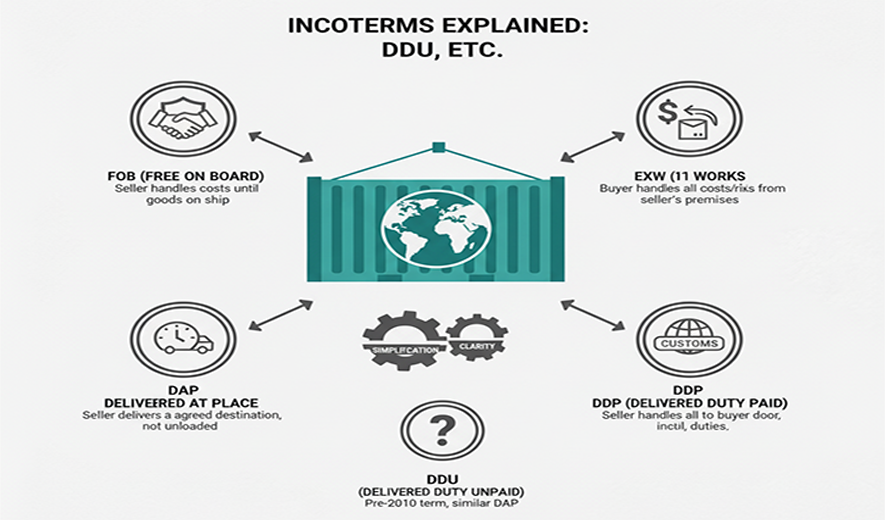
Incoterms Explained: DDU, DAP, etc.
Incoterms, or International Commercial Terms, are a set of rules published by the International Chamber of Commerce (ICC) that define the responsibilities of buyers and sellers for the delivery of goods under sales contracts for international trade.
The terms DDU (Delivered Duty Unpaid) and DAP (Delivered-at-Place) are delivery terms that place a significant amount of responsibility on the seller, but they differ primarily in their official status and the specific point of delivery/risk transfer.
1. DDU (Delivered Duty Unpaid)
- Status: DDU is no longer an official Incoterm in the current 2020 rules (it was officially removed in the 2010 version). However, it is still sometimes used in trade practice.
- Seller's Responsibility: The seller is responsible for all costs and risks of bringing the goods to the named place of destination in the country of importation.
-
Buyer's Responsibility: The buyer is responsible for:
- Unloading the goods at the destination.
- Import customs clearance.
- Paying all import duties, taxes (like VAT), and other official charges.
- Risk Transfer: Risk transfers from the seller to the buyer when the goods arrive at the named place of destination, ready for unloading.
2. DAP (Delivered-at-Place)
- Status: DAP is an official Incoterm (introduced in 2010 to replace DDU, DAF, DES, and DDE, and carried over in the 2020 revision).
- Seller's Responsibility: The seller is responsible for all costs and risks of bringing the goods to the named place of destination, ready for unloading. This includes export clearance and all main carriage costs.
-
Buyer's Responsibility: The buyer is responsible for:
- Unloading the goods at the destination.
- Import customs clearance.
- Paying all import duties, taxes, and other official charges.
- Risk Transfer: Risk transfers from the seller to the buyer when the goods are placed at the buyer's disposal on the arriving means of transport, ready for unloading, at the named place of destination.
- Summary: DAP is the official modern term that functions essentially the same as the old DDU, with the buyer handling import duties and clearance.
